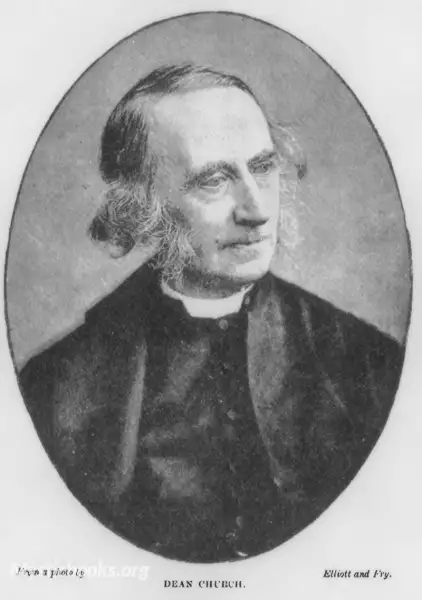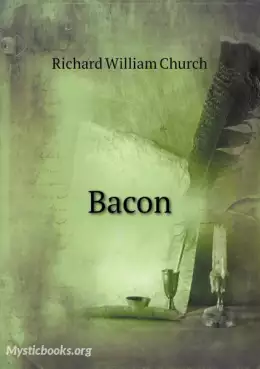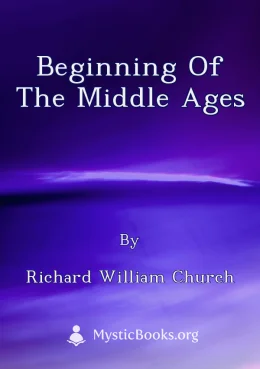
Timeline
Title
Country/Nationality
Richard William Church
Richard William Church was an English churchman and writer, known latterly as Dean Church. He was a close friend of John Henry Newman and allied with the Tractarian movement. Later he moved from Oxford academic life to some prominence in the Church of England.
Richard William was the eldest of three sons of John Dearman Church, a wine merchant, and his wife Bromley Caroline Metzener (died 1845). His grandfather Matthew Church, a merchant of Cork, and his wife, were Quakers, and John was not baptised into the Church of England until his marriage in 1814. His uncle, General Sir Richard Church (1784–1873), achieved fame as a liberator of Greece.
The family moved in 1818 to Florence. After his father's death in 1828 his mother settled in Bath and he was sent to a strict evangelical school at Redland, Bristol. He was admitted in 1832 to Wadham College, Oxford, and took first-class honours in 1836. His mother, meanwhile, was remarried to Thomas Crokat, a widowed Englishman of Leghorn.
In 1838, Church was elected fellow of Oriel College. One of his contemporaries, Richard Mitchell, commented on his election: "There is such a moral beauty about Church that they could not help taking him." He was appointed a tutor of Oriel in 1839 and ordained the same year. He was a close friend of John Henry Newman in this period and allied to the Tractarian movement. In 1841 Tract 90 of Tracts for the Times appeared and Church resigned his tutorship.
From 1844 to 1845, Church was junior proctor, and in that capacity and in concert with his senior colleague, vetoed a proposal to censure Tracts publicly. In 1846, with others, he started The Guardian newspaper and he was an early contributor to The Saturday Review. In 1850 he became engaged to H. F. Bennett, of a Somersetshire family, a niece of George Moberly, Bishop of Salisbury. After again holding the tutorship of Oriel, he accepted in 1858 the small living of Whatley in Somerset near Frome and was married the following year. He was said to be a diligent parish priest and a serious student, who contributed largely to current literature.
In 1888 Church's only son, Frederick John Church (1854–1888), died. Thereafter his own health declined. He appeared for the last time in public at the funeral of Henry Parry Liddon on 9 September 1890, dying on 9 December in the same year, at Dover. He was buried at Whatley.
Books by Richard William Church

Bacon
This investigation of Bacon the scholar and man of letters begins with a look at the early days and progresses to his relationships with Queen Elizabeth and James I. It includes accounts of his positions as solicitor general, attorney-general, and ch...

Beginning of the Middle Ages
Beginning of the Middle Ages offers a concise and accessible overview of the period from the fall of the Western Roman Empire in 476 CE to the rise of Charlemagne in the 8th century. Church provides a clear and engaging narrative, exploring the polit...